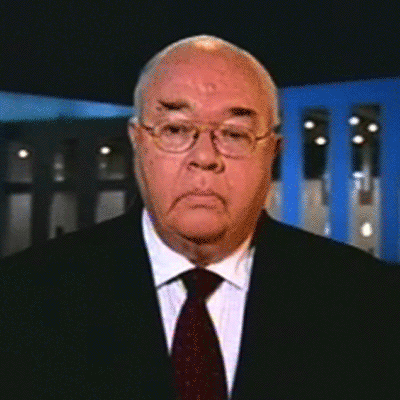Perhaps it's a sad state of affairs, but I don't LOL in the purest sense of a L.O.L. as much at the TV I used to. This could be attributed to a number of factors - getting older, the slow-creep of cynicism, the fact that my sense of humour is getting more oblique. Perhaps. In regards to the last point, one thing that I find hilarious (and makes me LOL) is errors in broadcast media. I wait for these zen-like moments like an astronomer watching the sky for shooting stars. I've even
caught and documented some in the past.
Recently broadcast media had to scramble for the latest significant event (The Ridding of The Rudd) and mistakes were made. Fortunately, ABCs Media Watch collated these and the result was (for me at least) hilarity as well as an interesting peek behind the curtain of current media. You can stream/watch the episode
here (serious LOLs start around 07:47).
My favourites:
 |
| And now, the news... In Kyrgyzstan (better in context) |
 |
| Laurie Oakes caught off guard (as a looping animated gif): |
 |
| David Stratton gets glitched |
 |
| David Stratton gets glitched (detail). Reminds me of something ... |
 |
| A still image, which lasted for one and a half minutes. |
Take note: this isn't so much taking pleasure in the mistakes of others - I work with screen-based media and am very familiar with its peccadilloes and there is an element of schadenfreude - rather these moments offer a moment of unexpected beauty honesty and hilarity which seems in stark contrast to the highly polished smug un-funniness of most contemporary TV.
As technology gets more baroque, more room for errors occurs. However, the errors spotted by Media Watch even persisted in Radio, which would be a more straight-forward medium than digital TV. While producers of said media would prefer that these mistakes get swept under the carpet or are eventually banished altogether I believe they are important part of where we are technologically and conceptually. In a way, the upheaval of getting a PM ousted was reflected in the media itself - the state of the country reflected in the state of the broadcast.





